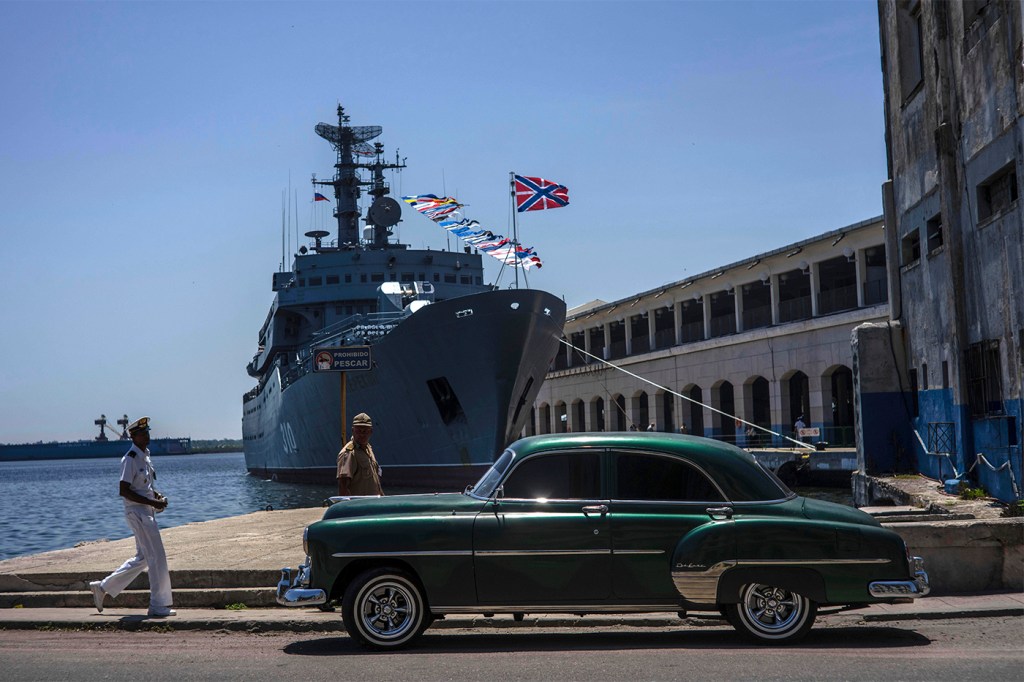Russian warships in Cuba recalls ‘Cold War posturing,’ but no threat, expert says
Mai’a Cross, dean’s professor of political science, international affairs and diplomacy, says the Russian fleet’s transit isn’t so much a show of force as it is “a bit of swaggering.”

Russian warships reportedly reached the shores of Cuba on Wednesday, some 200 miles off the coast of Florida — an episode that immediately conjured some of the more tense Cold War moments, but one that experts say is largely non-threatening.
According to the Washington Post, Russia’s Defense Ministry said that four Russian vessels arrived at Havana Harbor after conducting “military exercises in the North Atlantic Ocean.”
Mai’a Cross, dean’s professor of political science, international affairs and diplomacy, and director of the Center for International Affairs and World Cultures at Northeastern University, says the maneuver carries more symbolism than actual risk.
Featured Posts
“They’re not violating international law by docking their ships in Cuba,” she says.
“It’s notable only in that it is reminiscent of this kind of Cold War posturing,” Cross says, adding that there’s no real threat.
Both Russia’s and Cuba’s foreign ministries said the ships aren’t carrying nuclear weapons. Cross says the Russian fleet’s transit isn’t so much a show of force as it is “a bit of swaggering.”
“The visit of Russian warships to Cuba to include a nuclear-powered submarine certainly triggers memories of the Cuban Missile Crisis that brought the world to the brink of nuclear war,” says Stephen Flynn, founding director of the Global Resilience Institute.

The Cuban Missile Crisis was triggered by Soviet ships deploying missiles to Cuba in October 1962.
Communication between the U.S. and Russia has been strained since Russian President Vladimir Putin’s full-scale invasion of Ukraine in February 2022. According to Reuters, the two countries have used their shared military channel only once since the war began.
But it’s not as though the Russian ships would have traversed the Atlantic Ocean undetected.
“The visit will not have come as a surprise to the U.S. national security community, which keeps a close eye on Russia’s military assets,” Flynn says. “Since this is meant to be something of a provocation, Russia clearly welcomes the attention.”
Indeed, U.S. vessels — including, according to the Miami Herald, “three destroyers, a Coast Guard cutter and a maritime reconnaissance aircraft” — have been “closely monitoring” the fleet. Naval exercises in the watery expanse, U.S. officials say, are also routine.
The episode came a day before a joint meeting at the G-7 summit between President Joe Biden and Ukrainian President Volodymyr Zelensky in which the seven nations agreed to finance a $50 billion plan for Ukraine to purchase weaponry and rebuild its infrastructure amid the ongoing war.











